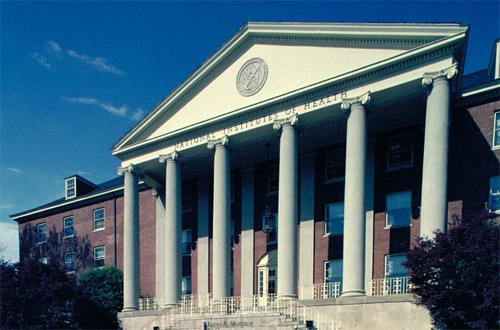
The US National Institutes of Health (NIH) is to support six Alzheimer’s research projects with combined funding of $45m.
The NIH, which is part of the US Department of Health and Human Services, said the initiative was part of an “intensified national effort to find effective interventions” for the disease, which is thought to affect five million people in the US.
This national effort has built up steam in the past few years following the NIH Alzheimer’s Disease Research Summit: Path to Treatment and Prevention in 2012, which acknowledged that basic science advances in Alzheimer’s research had not yet resulted in effective treatments or preventative measures.
The summit saw the launch of the National Plan to Address Alzheimer’s Disease to address this issue and cultivate a plan to better understand the fundamentals of biological processes in Alzheimer’s.
The six projects awarded funding all reflect research goals described in the National Plan and hope to identify potential therapeutic targets, rather than develop medicines directly.
“We are determined, even in a time of constrained fiscal resources, to capitalise on exciting scientific opportunities to advance understanding of Alzheimer’s biology and find effective therapies as quickly as possible,” said NIH director Dr Francis Collins.
The research project to receive the bulk of the fund is a five-year prevention trial led by Dr Eric Reiman and Dr Pierre Tariot of Banner Alzheimer’s Institute, Phoenix.
The initiative will receive $33.2m this year to fund tests of an anti-amyloid drug in elderly volunteers who are cognitively normal but have an increased possibility of developing late-onset Alzheimer’s because they have inherited two copies of the APOE4 allele – a genetic defect associated with Alzheimer’s.
Participants will be assessed to evaluate whether the drug impacts amyloid plaques, and what role these plaques have in the development of Alzheimer’s.
The results will of special interest for pharma companies considering the number of drugs targeting amyloid plaques that have failed in late stage trials in recent years, including ones developed by Lilly, Pfizer/ Johnson & Johnson and Bristol-Myers Squibb.
However, these trials have all involved participants who already have Alzheimer’s, while the NIH-backed study of an as-yet undecided treatment involves patients at risk of developing the condition.
Of the other projects to receive financial support from the NIH, researchers at Washington University will get $1.5m, potentially increasing to $6m, for a study to test new anti-amyloid-beta drug treatments in volunteers who have a rare, inherited, early-onset form of Alzheimer’s disease, while a University of Southern California team will have $2.4m to evaluate the safety and tolerability of increasing doses of allopregnanolone, a natural brain steroid, in treating mild cognitive impairment and Alzheimer’s disease.
A joint effort from Harvard University and Rush University Medical Center will receive $1.7m, potentially increasing to $7.9m, to research what genes are linked to Alzheimer’s, and the University of Florida will obtain $1.6m, potentially increasing to $7.7m, to research the role of the immune system in preventing the disease.
The final project to receive funding is a study by a team at the Icahn School of Medicine at Mount Sinai to use computational methods to determine if existing drugs for other conditions can be used to treat Alzheimer’s.
This follows research suggesting that the diabetes treatments Victoza (liraglutide) from Novo Nordisk and Takeda’s Actos (pioglitazone hydrochloride) both have potential as Alzheimer’s treatments.




